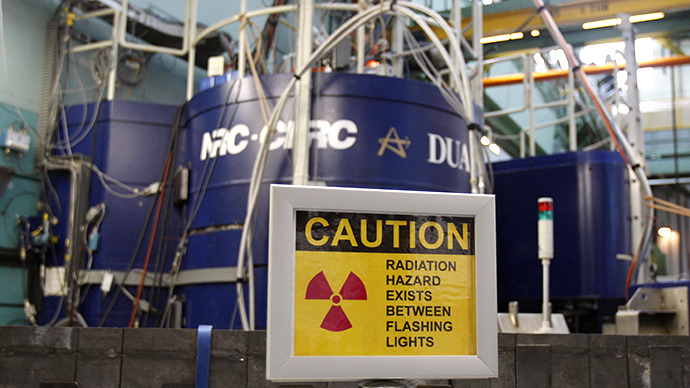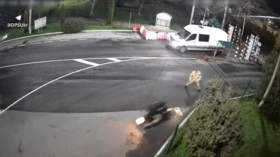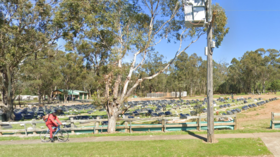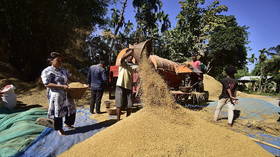Mission to transport 23,000 liters of bomb-grade uranium from Canada to US

Up to 76 truckloads of radioactive waste could soon be crossing into the US from Canada, local media reveal. Relocating the weapons-grade uranium (HEU) in liquid form would be the first operation of its kind, and is set to cost $60 million.
The trips may kick off in August, the US Nuclear Regulatory Commission (NRC) documents suggest. Up to 76 trucks will be utilized in the operation, the Ottawa Citizen estimated. Each cask would carry up to 257 liters and contain approximately 175kg of HEU, which would be enough to produce nearly seven nuclear bombs.
The potential transfer of the weapons-grade uranium liquid (HEU)
was first revealed in documents from the National Nuclear Security
Administration (NNSA) a week ago, with more details emerging on
Thursday.
The wide-scale operation would see decades’ worth of high-class nuclear waste being taken under armed guard along the Trans-Canada Highway over the course of four years and transferred from Chalk River, Ontario, to a South Carolina reprocessing site, a few hundreds liters at a time.
The waste is thought to come from Chalk River’s controversial
24,000-liter Fissile Solution Storage Tank (FISST) which contains
some 17 years’ worth of radioactive waste. It is the first time
such an operation to transport the substance in liquid form has
taken place, prompting concern from both sides of the
border.
Upon arrival in South Carolina, the solution will be converted to low enriched uranium (LEU) to be used as fuel in US commercial power reactors.
The federally-owned Atomic Energy of Canada Ltd will pay the $60-million cost of the operation.
Non-proliferation advocates have voiced fears that terrorists
might strike and successfully obtain the liquid, possibly using it
to build a weapon or undertake an act of sabotage could be carried
out, according to Canada’s British-Columbia based Province news
agency.
“This does seem to be an unprecedented, cross-border shipment of liquid high-level waste and, for that reason alone, it needs the highest order of environmental review on both sides of the border,” Tom Clements, a South Carolina campaign coordinator for Friends of the Earth, told Canada’s National Post.
Although the plans are still awaiting final approval from Canadian and US nuclear safety regulators, a strong initial agreement has been reached. Designs are already being reviewed to create a secure storage and transportation unit for the highly-enriched bomb-grade uranium. The Canadian Nuclear Safety Commission (CNSC) is currently reviewing the cask design approval application.
Canada is the world’s leading producer of medical isotopes, and
has faced heavy criticism over the last few years for stockpiling
HEU from the US, to be used in isotope production at the Chalk
River site.












